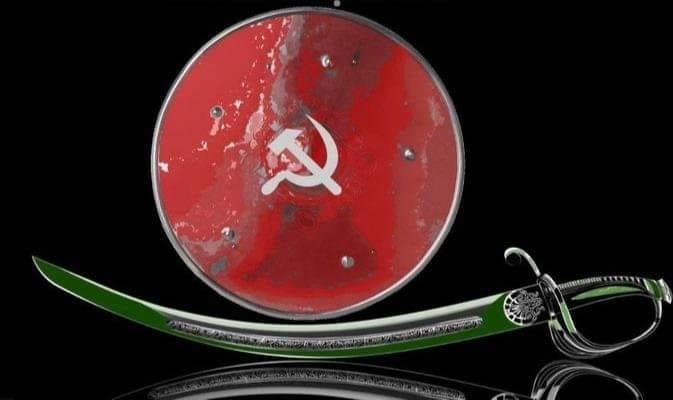Memory — a high-ranking traitor.
The year was 1996. The date — May 10. Among the many murders that occurred during the Left regime in West Bengal, one particular incident stands out. On that day, a man was murdered who wasn’t an outsider — he was a deeply trusted insider of the CPI(M) party. Yet, no investigation was carried out, no one was arrested, and the case faded into oblivion — unsolved, undocumented.
Reports from Ei Samay newspaper reveal the chilling details of this murder.
At the time of his death, Sushil Babu was 75 years old. He handled the party’s financial accounts at the CPI(M)’s state headquarters on Alimuddin Street. A humble, unassuming man with no enemies, Sushil Babu was brutally murdered one night while walking home after getting off a bus at Chingrighata, on the EM Bypass. His body was later found near a canal. To this day, no one knows who killed him or why. At the time, Jyoti Basu was Chief Minister, and Buddhadeb Bhattacharjee was the Home (Police) Minister.
There were allegations that Sushil Babu had bravely opposed certain party leaders who were misappropriating funds. And so, he was “eliminated” — removed as an obstacle.
His nephew, Mrinal Kanti Choudhury, still laments:
“My uncle was murdered brutally. Yet, no one came forward to help us identify the killers.”
Sushil Choudhury lived in a government housing complex in Ward 33 at Chingrighata, beside the Bypass. His apartment in Block 5 on the third floor is now locked. Every evening after work, he used to walk a few hundred meters to his nephew Mrinal’s house for dinner. Sitting in his home in Sukantanagar, Mrinal recalls that night vividly.
“It was May 10, 1996. Like every evening, uncle came for dinner. He said his blood sugar was low, so he ate more than usual,” said Mrinal, now 70. His wife Namita added, “He had rice, parshe fish, even some sweets. I packed him some malpua in a tiffin box before he left.”
The next morning, they learned that Sushil Babu had never returned home. Three days later, his throat-slit body was found in a canal near the EM Bypass. Beside it was a petrol lighter marked with the letter “S”. But Sushil Babu didn’t smoke.
Mrinal said, “To this day, I don’t know why the CPM never investigated.”
He wasn’t the only one demanding answers. The De family, who lived nearby and often interacted with Sushil Babu, also remember him as a kind and simple man.
Gopal De said, “The killers must be brought to justice.”
When asked whether they would file a formal complaint, Mrinal replied cautiously, “When it comes to party matters, people are afraid.” Gopal too didn’t want to get involved in “party issues.”
To this day, no one knows who killed Sushil Babu or why. At the time, Jyoti Basu was Chief Minister and Buddhadeb Bhattacharjee was Police Minister.
There were allegations that some party leaders were embezzling funds and Sushil Babu stood up to them — which led to his murder.
Buddhadeb Bhattacharjee, speaking in the State Assembly, had twice declared that the killers would be caught. But they never were. The CPM didn’t even blame the opposition for the murder — nor did it set up an internal commission, as it often did for such incidents.
Instead, the murder of the CPI(M)’s own state treasurer was treated like just another unidentified homicide — and quietly buried.
During Mamata Banerjee’s government, there was no progress in the case. The investigation hit a dead end. Answers to many questions remain lost.
Eventually, Mamata Banerjee’s finance department, under the Economic Offences Wing, launched an investigation into the CPI(M)’s bank accounts. They discovered ₹16 crore in a joint account held by Biman Bose and Nirupam Sen. The Chief Minister publicly questioned,
“How did full-time leaders of a proletarian party accumulate so much money?”
At the time of Sushil Babu’s murder, Rajpal Singh, then DIG of the Presidency Range, recalled:
“I visited the crime scene to investigate. The very next day, I was transferred to the Railways. Buddhadeb Bhattacharjee, then Police Minister, summoned and scolded me.”
Even under the Trinamool Congress rule, the case saw no revival. The path of the investigation simply vanished — and with it, many truths.
Today, self-proclaimed “revolutionaries” still scream slogans in the name of advanced Marxist equality.
Justice, it seems, drinks whiskey and hiccups along the EM Bypass at night.
Marxism is omnipotent — because it is the truth.
Content and images sourced from Bengal Owl.

